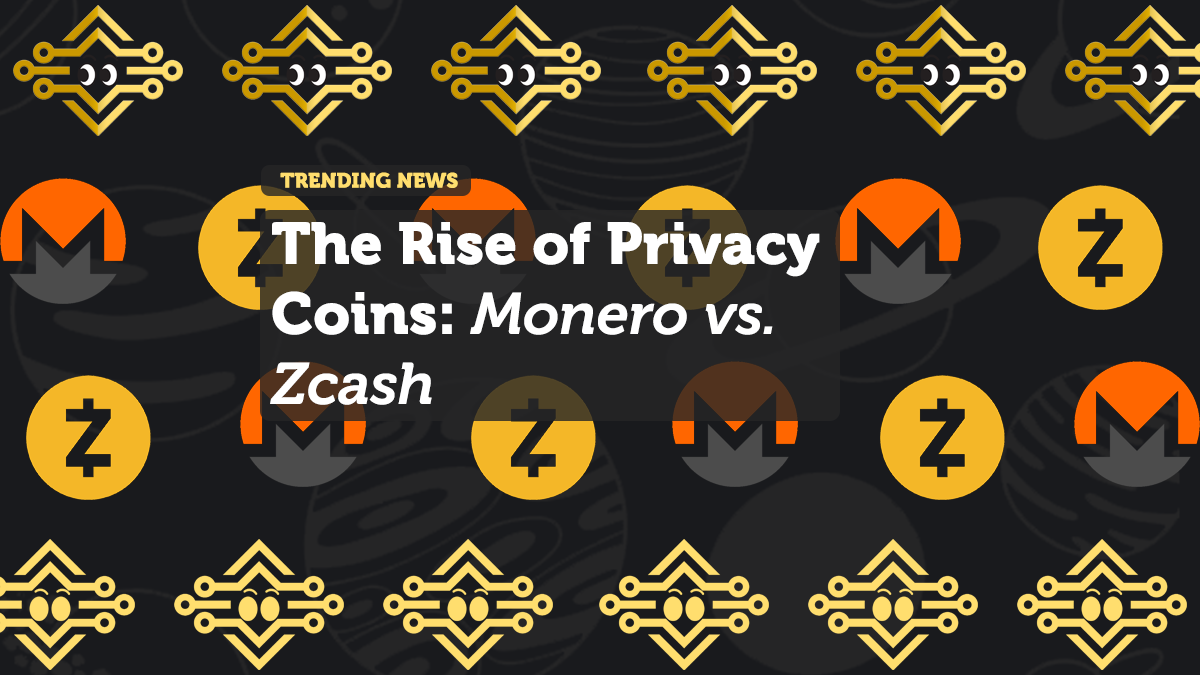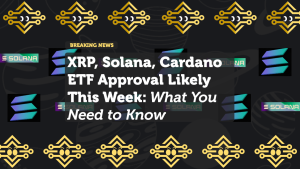
The Rise of Privacy Coins: Monero vs. Zcash
In an era where privacy is increasingly under threat, privacy coins like Monero and Zcash are gaining attention. These coins offer anonymity in a world where digital transactions are often tracked. But how do Monero and Zcash compare? This article explores the differences between these two privacy-focused cryptocurrencies, their approaches to anonymity, and their potential futures in a rapidly changing regulatory environment.
Monero: Untraceable and Secure by Design
Monero (XMR) is widely regarded as one of the most secure and untraceable cryptocurrencies available today. Launched in 2014, Monero uses a unique approach to ensure privacy for all transactions. It employs technologies like Ring Signatures, Stealth Addresses, and RingCT (Confidential Transactions) to obscure the details of transactions, making it nearly impossible to trace them back to individuals.
- Ring Signatures: These mix the sender’s output with several others, masking the actual sender.
- Stealth Addresses: A one-time use address is generated for each transaction, ensuring that the recipient’s address is hidden.
- RingCT: This hides the transaction amount, adding an extra layer of privacy.
These features make Monero a go-to choice for users who prioritize privacy. However, its strong privacy features have also attracted the attention of regulators, who are concerned about its potential use in illegal activities.
Zcash: Optional Privacy with Zero-Knowledge Proofs
Zcash (ZEC), launched in 2016, takes a different approach to privacy. It offers users the option to shield their transactions using a technology called zk-SNARKs (Zero-Knowledge Succinct Non-Interactive Arguments of Knowledge). This allows users to prove that a transaction is valid without revealing any details about the sender, receiver, or the amount.
- Transparent vs. Shielded Transactions: Zcash allows for both transparent and shielded transactions. Users can choose whether they want their transaction details to be public or private.
- zk-SNARKs: This cryptographic method allows for secure, private transactions without revealing any transaction data, ensuring that the proof is valid while keeping the details hidden.
Zcash’s optional privacy model has made it a more regulatory-friendly alternative to Monero, as it allows users to comply with regulations when necessary while still offering strong privacy features for those who need them.
Recent Developments in Privacy Coins
Both Monero and Zcash have seen significant upgrades and developments recently, further enhancing their privacy features and security.
- Monero: Monero has undergone several network upgrades, including an increase in the number of decoy inputs used in Ring Signatures, improving its privacy. In July 2022, Monero implemented the “Fluffy Blocks” protocol, which reduces the size of data required to sync the blockchain, making it more efficient.
- Zcash: Zcash introduced the “Halo Arc” upgrade in 2022, which includes Halo 2, a breakthrough in zero-knowledge proofs that improves scalability and removes the need for a trusted setup. This upgrade has made Zcash even more secure and scalable, reinforcing its position as a leading privacy coin.
The Role of Privacy Coins in a Regulatory Environment
As governments worldwide increase scrutiny on cryptocurrency transactions, privacy coins like Monero and Zcash face significant challenges. Regulators are concerned about their potential use in money laundering, tax evasion, and other illegal activities. This has led to several exchanges delisting privacy coins, making it harder for users to trade them.
However, the demand for privacy-focused cryptocurrencies remains strong, especially as digital privacy concerns grow. Privacy coins offer a solution for individuals and businesses that want to protect their financial information from prying eyes. As a result, they continue to play a crucial role in the crypto ecosystem, despite regulatory pressures.
The Future Potential of Monero and Zcash
The future of privacy coins like Monero and Zcash largely depends on how they navigate the regulatory landscape and continue to innovate. As privacy concerns increase in the digital age, the demand for these coins is likely to grow.
- Monero: Monero’s strong privacy features make it appealing to those who need complete anonymity. However, its future will depend on how it adapts to regulatory challenges and whether it can maintain its privacy standards without facing widespread delisting.
- Zcash: Zcash’s ability to offer optional privacy gives it an advantage in a regulatory environment that demands transparency. Its continuous upgrades, like Halo 2, could make it a preferred choice for users who want flexibility between privacy and compliance.
Final Thoughts: Monero vs. Zcash
Monero and Zcash represent two different approaches to privacy in the cryptocurrency world. Monero offers robust, mandatory privacy features, making it the go-to for complete anonymity. Zcash, on the other hand, offers optional privacy, giving users the flexibility to choose how much they want to reveal.
As privacy concerns grow and regulatory scrutiny increases, both Monero and Zcash have the potential to play significant roles in the future of digital finance. Their continued evolution and ability to adapt to the changing landscape will determine their success in the coming years.
















